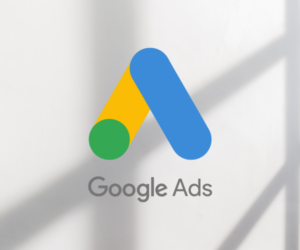There’s a belief or say the fear that you need a bigger budget to succeed with Google Ads. You can’t complete with the likes of Amazon with Google Ads. Is Google Ads right for small businesses?
What is your take on that?
I often get this question, and my answer is – no, it’s not so.
You would agree that Google Ads is the most comprehensive advertising platfrom mankind has ever known. And, there are reasons for that. The placements where your ads can show with Google Ads, the targeting options available, and the comprehensive reporting on your Key Performance Indicators (KPIs) are some of the reasons.
So, where can your ads appear when you choose to advertise with Google Ads?
Here are some of the placements:
- Google Search – World’s largest search engine
- YouTube – The second largest search engine
- Gmail – by far the most popular browser email client
- Display Network – Group of over 2 million websites, videos, and apps
Google’s Display Network sites reach over 90% of Internet users worldwide – ComScore.
That’s about the reach a business can have with Google Ads.
Now, let’s talk about the targeting options available:
- Keywords – Show ads when you users search for exactly what you offer
- Context – Show ads on placements based topics and contexts of the contents
- Audience – Show ads to users which specific short term and long interests
- Placements – Handpick sites, apps and video where you want to show your ads
- Location – Target locations as per your need, countries, states, cities, or Postal Codes
- Ad Type – Text, Image, Video or mix of all these
- Device – Target specific device category and devices
- Time – Control your ads for specific days and hours
- Advertising Goals – Traffic, Specific Actions like call, leads, sales, branding, revenue
And so on… the list continues.
But that doesn’t answer the question yet, does it?
Being comprehensive is one thing and being suitable for a business size is another.
Let me take on that question now.
But, will you bear with me for a short story, please?
The story of an ideal daughter.
It is about Myra – a non-resident Indian settled in Texas, USA 5 years ago. The only child to her parents, an empowered women, and the monther to an adobrable 1 year old son. Let me tell you that she was very much emotionally attached to her parents even after her marriage.
The story took a turn when her parents met with an accident about 6 months ago.
She was emotionally turmoiled but collected her up well soon. One of her father’s friends, who was a lawyer, came to read out her father’s will to her.
But, there’s one thing very specific peculiar in the will.
Her father wanted her to sell his luxuriously-built house to someone who would live there and donate the money collected to an NGO working for the homeless.
It was a grand house, no doubt. Still, the condition that the house would be sold to someone who would live there, was a difficult part for Myra.
Knowing she would do all it takes to fullfil her father’s wish. She arranged an auction for the house. A total of 75 participants came to participate.
It was an auction, but not the usual one. Myra had some conditions in this auction:
- All the bidders in the auction will place the bid only once
- The bidders will have to clearly state the reason as to why they are going to buy the house
Putting it to maths, Myra wanted two quantifiable metrics to decide the winner.
- The bids
- And the quality of the reasons stated.
To quantify the quality, she decided to rate it on the scale of 1 to 10.
Now, multiplying these two metrics, she would find the number called Order Rank that would decide the winner.
So technically, the highest bidder will not necessarily win the auction now. The quality of the reason for buying stated might change the game entirely.
Let’s put it into a table…
| Participants | Bid Amount | Quality Rating | Order Rank |
| Mr. A | $4 Million | 3 | 12 |
| Mr. B | $2 Million | 8 | 16 |
| Mr. C | $3 Million | 6 | 18 |
Now let’s arrange it by the Order Rank:
| Participants | Bid Amount | Quality Rating | Order Rank |
| Mr. C | 3 Million | 6 | 18 |
| Mr. B | 2 Million | 8 | 16 |
| Mr. A | 4 Million | 3 | 12 |
So, obviously Mr. C wins the auction and of course, the house. But how much does he pay as the final price? His bid – $3 million?
No, there’s a catch.
Myra wanted to reward the winner for accepting her request and the father’s wish to reside in the house. So, she made this auction a second-price-acution.
It means, the winner will not pay the full amount of his bid, but the bid of the second-place participate will play a role in deciding the amount.
So, she came with a formula. The Order Rank of the second place bidder would be divided by the winner’s Quality Rating to find the final amount.
So, from the table above, the final amount Mr C would pay:
16/6 = $2.67 Million.
It was a win-win situation for everyone. Myra could do what here father wanted and the winner was happy that he paid the right amount.
—
That was the story. Now take this story in the context of the real Google Ads Auction.
Key Features of Google Ads Auction
It’s principally the same.
- The highest bidder does not necessarily take the first position of ads
- The quality of the ad, it’s relevance to keywords, and landing page experience add up to decide the Quality Score metric
- Quality Score is multiplied by bids to decide the Ad Rank
- Ad Rank of the advertiser below your Ad Rank is divided by your own Quality Score to decide the price you pay.
Next, you do not necessarily pay the full amount of your bid.
Now if you analyze it all, you will understand that different advertisers pay different for the same keyword. The bid amount alone is not important. Quality of your ads, keywords, and landing page are very important.
If you improve the quality metrics, you pay lesser for the same keyword, maybe even for a higher ad position.
It makes Google Ads a unique Advertisign System where advertisers with big spends cannot directly bring auctions in their favour. Advertisers with small budgets in an auction have the same set of opportunities.
The Quality Score metric changes the game.
Working with Quality Score, even small businesses can very easily beat big businesses in a given auction.
Is the question answered now? Let me know your thoughts.
Sharing is caring!










1 thought on “Is Google Ads right for small businesses? If Yes, How?”
Brilliant example of the story explaining the Google Ad bidding and winning process!